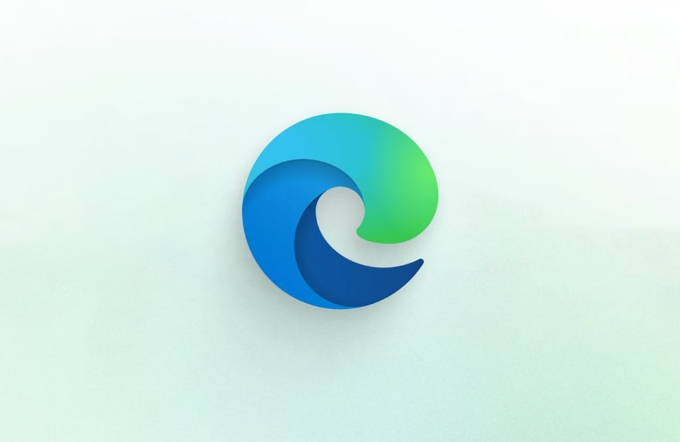Why is Edge not showing up in default apps
If Microsoft Edge does not appear in the default browser list, reasons may include group policy restrictions, installation issues, multi-version conflicts, or system compatibility issues. 1. Check whether Edge cannot be displayed due to group policy restrictions, especially for work or school equipment; 2. Make sure Edge is installed correctly, otherwise try to uninstall and reinstall it through the Microsoft Store or reset it using the PowerShell command; 3. Multi-user configuration files or multiple versions of Edge coexistence may cause conflicts, try to restart the computer and keep only one Edge version; 4. Update the Windows system to ensure compatibility, check whether there are available updates and install them.

If you're trying to set Microsoft Edge as your default browser and it doesn't show up in the list of available apps, you're probably confused — especially if you've already installed it. There are a few common reasons why Edge might not appear in the "Default Apps" section on Windows.

1. Edge Might Be Blocked by Group Policy or Admin Settings
One major reason Edge doesn't show up is due to group policy restrictions — especially on work or school devices. If your device is managed by an organization, certain settings could prevent Edge from appearing in the list of available default browsers.
- You can check this by searching for “Edit group policy” (if you have access).
- Go to
Computer Configuration > Administrative Templates > Windows Components > Microsoft Edge. - Look for policies that restrict default browser changes.
On personal machines, this is less likely unless you've tinkered with system policies yourself.

2. Edge Isn't Fully Installed or Is Corrupted
Sometimes, even though Edge seems to be installed, it might not be fully registered in the system — which means Windows won't recognize it as an option in Default Apps.
Try these steps:

Open Settings > Apps > Installed apps , search for Microsoft Edge.
If it's there, try uninstalling and reinstalling it from the Microsoft Store.
-
Alternatively, use the built-in Windows PowerShell to reset Edge:
Get-AppxPackage -allusers Microsoft.MicrosoftEdge | Foreach {Add-AppxPackage -DisableDevelopmentMode -Register "$($_.InstallLocation)\AppXManifest.xml"}
This command will re-register Edge properly.
3. Multiple Versions or Profiles Are Causing Conflicts
If you have multiple user profiles on your PC, or both the stable and beta versions of Edge installed, Windows might get confused about which one to display.
- Try signing out of all Edge instances and restarting your computer.
- Then, log back in and open Edge at least once before checking Default Apps again.
Also, make sure only one version of Edge is installed. Having Edge Beta, Dev, and Stable versions side-by-side may interfere with how Windows recognizes it.
4. Windows Version Compatibility Issues
Older versions of Windows 10 (especially those no longer supported) may not fully support newer versions of Edge. Make sure your system is up to date:
- Go to Settings > Update & Security > Windows Update
- Check for updates and install any pending ones
After updating, restart your machine and see if Edge appears in the Default Apps list.
Basically, if Edge isn't showing up, start by confirming it's correctly installed and recognized by the system. Then look into potential system-level blocks or conflicts. Most of the time, resetting or reinstalling Edge fixes the issue — especially on personal devices.
The above is the detailed content of Why is Edge not showing up in default apps. For more information, please follow other related articles on the PHP Chinese website!

Hot AI Tools

Undress AI Tool
Undress images for free

Undresser.AI Undress
AI-powered app for creating realistic nude photos

AI Clothes Remover
Online AI tool for removing clothes from photos.

Clothoff.io
AI clothes remover

Video Face Swap
Swap faces in any video effortlessly with our completely free AI face swap tool!

Hot Article

Hot Tools

Notepad++7.3.1
Easy-to-use and free code editor

SublimeText3 Chinese version
Chinese version, very easy to use

Zend Studio 13.0.1
Powerful PHP integrated development environment

Dreamweaver CS6
Visual web development tools

SublimeText3 Mac version
God-level code editing software (SublimeText3)
 How to add a site to the trusted sites list in Edge
Jul 21, 2025 am 12:18 AM
How to add a site to the trusted sites list in Edge
Jul 21, 2025 am 12:18 AM
To add a website to Edge's list of trusted sites, first open the Edge browser, go to Settings → Privacy, Search and Services, find the Security section and click on Internet Options. Then click "Trusted Sites" in the "Security" tab, enter the URL and click "Add". To include subdomain names, use wildcard formats (such as https://*.example.com). 1. Open the Edge settings and enter the Internet options; 2. Click the "Site" button on the "Security" tab; 3. Enter the URL and confirm the addition; 4. Optionally adjust the security level or custom permissions; 5. Verify whether the target website is successfully accessed. Pay attention to the URL format and coordination when operating
 Why are videos not playing in Microsoft Edge
Jul 27, 2025 am 01:23 AM
Why are videos not playing in Microsoft Edge
Jul 27, 2025 am 01:23 AM
The inability to play videos in Microsoft Edge is usually caused by several common reasons, which can be solved by the following steps: 1. Browser extension interference, try to temporarily disable all extensions to troubleshoot problems; 2. Browser or media codec is outdated, check Edge and system updates to ensure the latest; 3. Hardware acceleration issues, you can turn off hardware acceleration in settings and test whether it is improved; 4. Cache and cookies conflict, clearing caches and cookies in browsing data helps restore playback functions. Trying these methods in order usually solves most video playback problems.
 How to manage startup pages in Edge
Jul 25, 2025 am 01:09 AM
How to manage startup pages in Edge
Jul 25, 2025 am 01:09 AM
The launch page settings of the Edge browser help improve efficiency. First, go to "Settings" → "General" → "When Startup", and you can choose to open a new tab page, continue the last page or a specific page; secondly, you can expand the customization of new tab page content by installing Infinity or Momentum to enhance practicality and aesthetics; if the settings are invalid, it may be due to plug-in interference, enterprise policy restrictions or errors in setting paths, and you need to check and resolve them one by one. Properly configuring the startup page can significantly optimize the daily browsing experience.
 How to change Edge's graphics backend (ANGLE)
Jul 27, 2025 am 12:52 AM
How to change Edge's graphics backend (ANGLE)
Jul 27, 2025 am 12:52 AM
Ifyou’reexperiencinggraphicsrenderingissuesinMicrosoftEdge,especiallywithWebGL-heavysites,youcanchangethegraphicsbackendusingcommand-lineflags.EdgeusesANGLEbydefault,translatingOpenGLEStoDirectX,butsupportsswitchingtoVulkan,OpenGL,orDirectX11.Toacces
 How to enable dark mode in Microsoft Edge
Jul 15, 2025 am 12:19 AM
How to enable dark mode in Microsoft Edge
Jul 15, 2025 am 12:19 AM
There are three ways to enable Microsoft Edge dark mode: 1. Adjust the theme color, go to Settings > Appearance > Theme color, and select dark or follow the system; 2. Enable "Dark Mode Browse Web Pages" to force the web page to dark display; 3. In conjunction with the Windows system dark mode, set both the system and application mode to dark, and set Edge to "Follow the System" to automatically switch. These three methods can be used individually or in combination according to needs to achieve a dark browsing experience of the interface or the entire web page.
 How to use password health dashboard in Edge
Jul 13, 2025 am 12:42 AM
How to use password health dashboard in Edge
Jul 13, 2025 am 12:42 AM
The password health dashboard of Edge browser helps users check the security status of saved passwords, including finding weak passwords, duplicate passwords, and leaked passwords. The enable method is: Open Edge → click on the three dots in the upper right corner → Settings → Profile → Password → Enter the "Password Health" section. This function evaluates three aspects: 1. Weak password; 2. Reused passwords; 3. Passwords that appear in data leakage and provide an overall score. The steps to improve security are: 1. Use the built-in strong password generator to modify weak passwords or repeated passwords; 2. Replace and update Edge to save records as soon as possible. You need to log in to your Microsoft account and enable the synchronization function before you can use it completely. Only by dealing with prompt questions can you truly improve account security.
 How to create multiple profiles in Microsoft Edge
Jul 21, 2025 am 12:38 AM
How to create multiple profiles in Microsoft Edge
Jul 21, 2025 am 12:38 AM
Creating multiple user profiles can help differentiate between work, study, and personal browsing needs in Microsoft Edge. First, click the profile icon in the upper right corner, select "Add" or "Manage User", enter a name, set avatar, and optionally log in to a Microsoft account; second, each configuration file independently saves bookmarks, extensions, caches, default search engines and other settings; finally, toggle users, just click on the user's avatar or use the shortcut key Alt F to select the target configuration file. In addition, logging into a Microsoft account allows you to synchronize data across devices, which can be used by local users without networking. It is recommended to set different avatars and colors for different users to identify.
 How to force Edge to run as administrator
Jul 25, 2025 am 01:02 AM
How to force Edge to run as administrator
Jul 25, 2025 am 01:02 AM
TorunMicrosoftEdgeasadministrator,useashortcutbyright-clickingandselecting"Runasadministrator,"orcreateacustomshortcutwithelevatedpermissions.Alternatively,configuretheEdgeexecutabletoalwaysrunasadminviaitsProperties.Advanceduserscanbypasst







